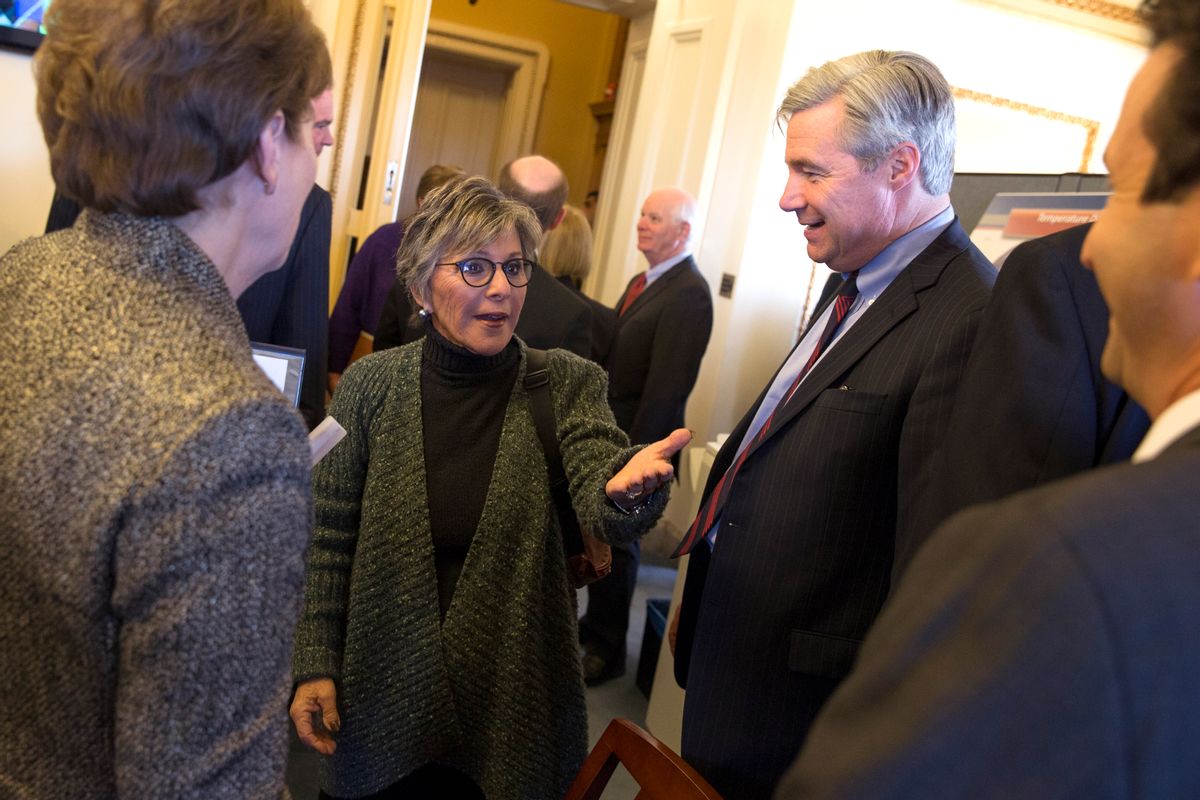Monday night, 29 Democratic senators and two Independents took to the Senate floor for a 15-hour talkathon on climate change. So where were the other 24?
Presumably, they'd calculated that taking a stand in favor of climate-related legislation wasn't in their best interest, politically. Or economically, as Paul Blumenthal writes at the Huffington Post. Using data collected from the Center for Responsive Politics, Blumenthal calculated the amount of money raised from oil and gas industry executives, employees and PACs since 2006 by 30 participating senators (Sen. Patrick Leahy, D-Vt., joined the group later).
Everyone took some industry money. Specifically, Blumenthal found that each member of the participating group, on average, raised $56,269 from these special-interest representatives. Over the same period, though, the 70 senators who sat out raised $289,544.
Obviously, that stark discrepancy arose in part because most of the money -- over 75 percent -- went to Republican candidates. But Blumenthal then compared the participating senators to the Democrats who opted out. Since 2006, he found, the nonparticipating Democratic senators raised an average of $115,784, twice as much as the participators' average.
The most notable absentees, as the New York Times notes, were also the most vulnerable in the midterm elections: Mark Begich (D-AK) of Alaska, Kay Hagan, D-N.C., Mary Landrieu, D-La., and Mark Pryor, D-Ark., are all from states where the economy is reliant on oil or gas production.
Over at the Washington Post, Ed O'Keefe points out that the participating senators had a financial motivation of their own to talk up their commitment to pushing climate legislation. Also using data from the Center for Responsive Politics, he found that environmental groups spent about $20 million supporting Democrats during the 2012 election cycle, plus another $742,000 in direct donations to candidates. Plus, now they're all competing for a share of Tom Steyer's $100 million.



Shares